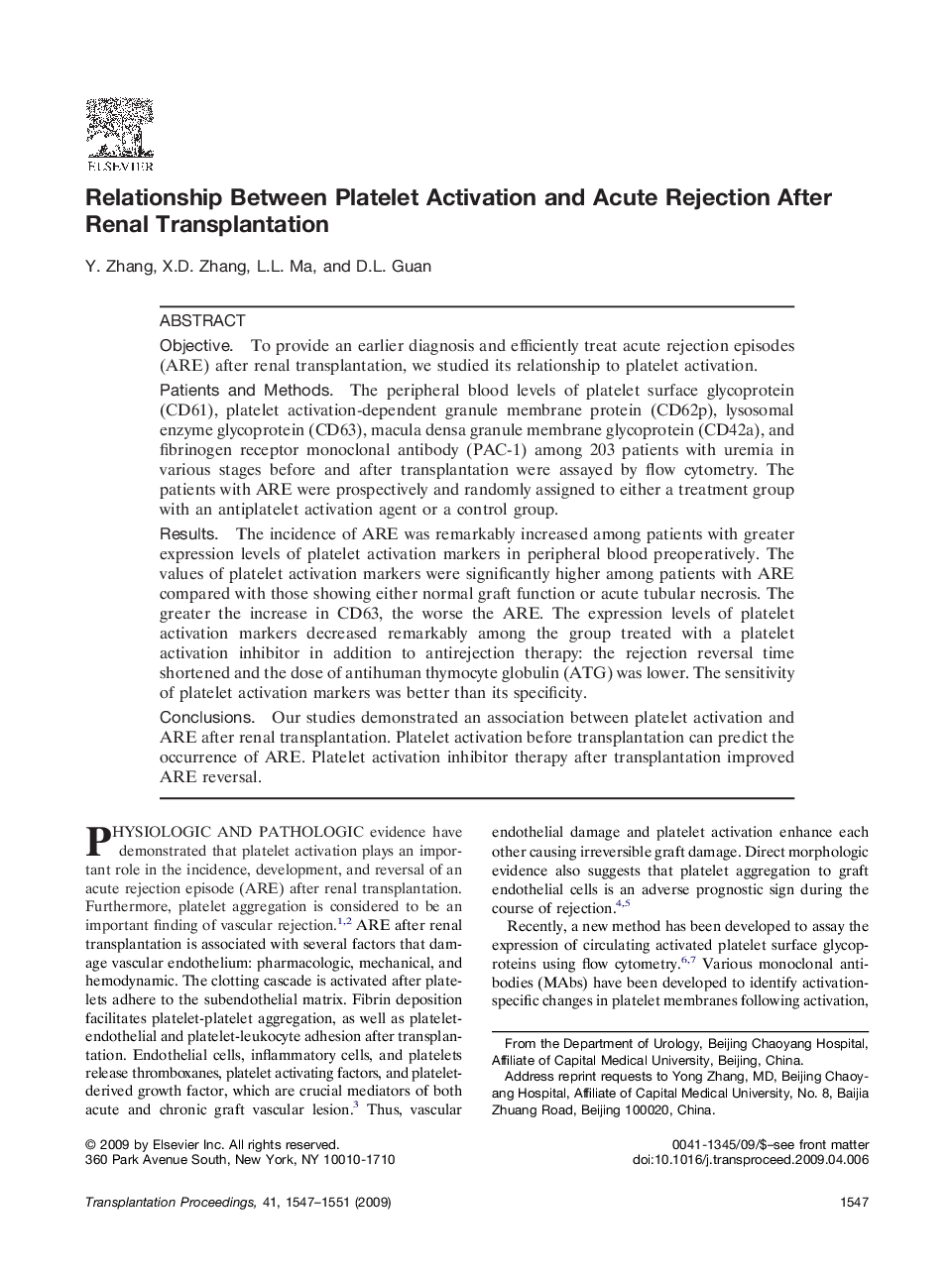| Article ID | Journal | Published Year | Pages | File Type |
|---|---|---|---|---|
| 4259234 | Transplantation Proceedings | 2009 | 5 Pages |
ObjectiveTo provide an earlier diagnosis and efficiently treat acute rejection episodes (ARE) after renal transplantation, we studied its relationship to platelet activation.Patients and MethodsThe peripheral blood levels of platelet surface glycoprotein (CD61), platelet activation-dependent granule membrane protein (CD62p), lysosomal enzyme glycoprotein (CD63), macula densa granule membrane glycoprotein (CD42a), and fibrinogen receptor monoclonal antibody (PAC-1) among 203 patients with uremia in various stages before and after transplantation were assayed by flow cytometry. The patients with ARE were prospectively and randomly assigned to either a treatment group with an antiplatelet activation agent or a control group.ResultsThe incidence of ARE was remarkably increased among patients with greater expression levels of platelet activation markers in peripheral blood preoperatively. The values of platelet activation markers were significantly higher among patients with ARE compared with those showing either normal graft function or acute tubular necrosis. The greater the increase in CD63, the worse the ARE. The expression levels of platelet activation markers decreased remarkably among the group treated with a platelet activation inhibitor in addition to antirejection therapy: the rejection reversal time shortened and the dose of antihuman thymocyte globulin (ATG) was lower. The sensitivity of platelet activation markers was better than its specificity.ConclusionsOur studies demonstrated an association between platelet activation and ARE after renal transplantation. Platelet activation before transplantation can predict the occurrence of ARE. Platelet activation inhibitor therapy after transplantation improved ARE reversal.
